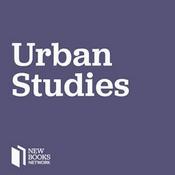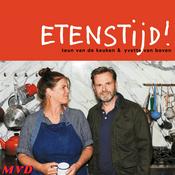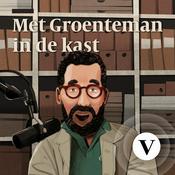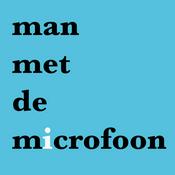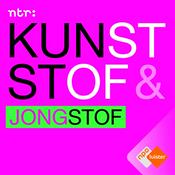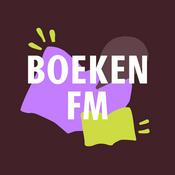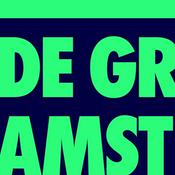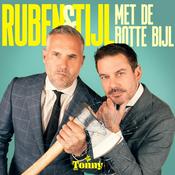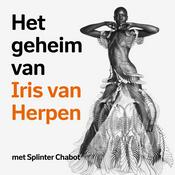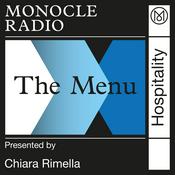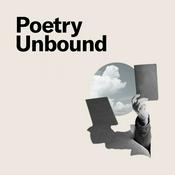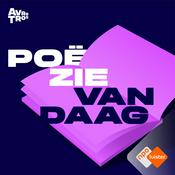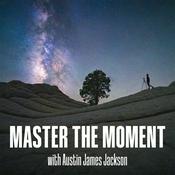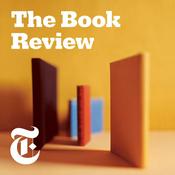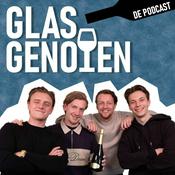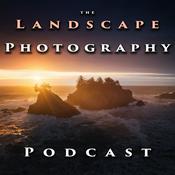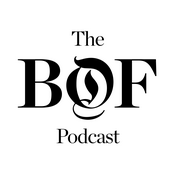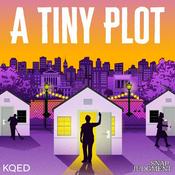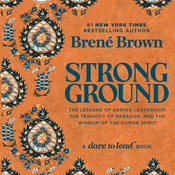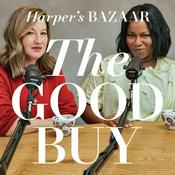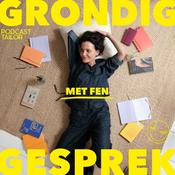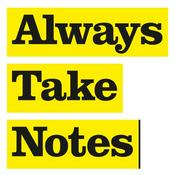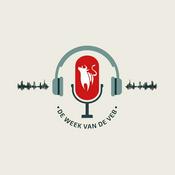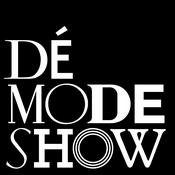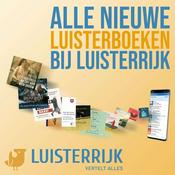784 afleveringen
Ananya Vajpeyi, "Place: Intimate Encounters with Cities" (Women Unlimited Ink, 2025)
23-2-2026 | 1 u. 15 Min.'In the five years that I tacked incessantly between Delhi, Venice and Istanbul, two questions plagued me: How do we lose what we lose? Why do we love whom we love?'
In this collection of essays written over 25 years, Ananya Vajpeyi recounts her experience of 13 cities across India and the world, engaging with them as layered spaces where history, memory and meaning converge.
Through elegantly crafted narratives, interwoven with cultural insight, political reflection and personal meditation, she evokes the emotional and intellectual contours of each place, offering readers her immersive, intimate encounters with cities she love.
Ananya Vajpeyi is Professor at the Centre for the Study of Developing Societies, New Delhi.
Lucas Tse is Examination Fellow at All Souls College, Oxford University.
Learn more about your ad choices. Visit megaphone.fm/adchoicesMark D. Steinberg, "Moral Storytelling in 1920s New York, Odessa, and Bombay: Sex, Crime, Violence, and Nightlife in the Modern City" (Bloomsbury, 2026)
21-2-2026 | 1 u. 3 Min.Using public storytelling as a driving force, Moral Storytelling in 1920s New York, Odessa, and Bombay: Sex, Crime, Violence, and Nightlife in the Modern City (Bloomsbury, 2026) by Dr. Mark D. Steinberg explores everyday social moralities relating to stories of sex, crime, violence, and nightlife in the 1920s city space. Focusing on capitalist New York, communist Odessa, and colonial Bombay, Dr. Steinberg taps into the global dimension of complex everyday moral anxiety that was prevalent in a vital and troubled decade.Moral Storytelling in 1920s New York, Odessa, and Bombay compares and connects stories of the street in three compelling cosmopolitan port cities. It offers novel insights into significant and varied areas of study, including city life, sex, prostitution, jazz, dancing, gangsters, criminal undergrounds, cinema, ethnic and racial experiences and conflicts, prohibition and drinking, street violence, 'hooliganism' and other forms of 'deviance' in the contexts of capitalism, colonialism, communism, and nationalism.The book tells the stories of moralizers: empowered and insistent critics of deviance driven to investigate, interpret, and interfere with how people lived and played. Beside them, not always comfortably, were the policemen and journalists who enforced and documented these efforts. It also reveals the histories of women and men, mostly working class and young, who were observed and categorized: those judged to be wayward, disreputable, disorderly, debauched, and wild. Dr. Steinberg explores this global culture war and the everyday moral improvisations-shaped by experiences of class, generation, gender, ethnicity, and race-that came with it.
This interview was conducted by Dr. Miranda Melcher whose book focuses on post-conflict military integration, understanding treaty negotiation and implementation in civil war contexts, with qualitative analysis of the Angolan and Mozambican civil wars. You can find Miranda’s interviews on New Books with Miranda Melcher, wherever you get your podcasts.
Learn more about your ad choices. Visit megaphone.fm/adchoicesErick Guerra, "Overbuilt: The High Costs and Low Rewards of US Highway Construction" (Island Press, 2025)
20-2-2026 | 36 Min.The world’s largest public works investment visible from space, the Interstate Highway System and the hundreds of thousands of miles of supporting roadways, are frequently hailed as a marvel and triumph of engineering. President Eisenhower’s 1956 Interstate Highway Act is often praised as a model of successful bipartisanship.
Today, the extensive damage wreaked by the creation of the highway system and the ills of car dependency are more widely acknowledged. Congestion and traffic deaths remain endemic despite nearly three-quarters a century of public policies and trillions of dollars spent with a primary stated goal of reducing congestion and improving traffic safety. The financing, governance, and construction models established by the 1956 act continue to influence what gets built today.
In Overbuilt: The High Costs and Low Rewards of US Highway Construction (Island Press, 2025), transportation planning expert Dr. Erick Guerra describes how the US roadway system became overbuilt, how public policy continues to encourage overbuilding, what the scale and consequences of overbuilding are, and how we can rethink our approach to highway building in the US.
Guerra explains that the national propensity to build roadways is no longer official or intentional policy. Instead, overbuilding stems from the institutions, finance mechanisms, and evaluation metrics developed in the first half of the twentieth century. While more funds are set aside for transit, walking, biking, and beautification, the investment paradigm has not changed. Planners and engineers have not adjusted the tools they use to determine which roads should be built, rebuilt, or widened and why. The country has added more lanes of urban Interstate since declaring the Interstate system complete than prior to it.
Despite having too much roadway, the country is still operating in construction mode, using the same basic approach used to finance and build the interstate system quickly, Dr. Guerra states. The interstate was completed more than three decades ago. Overbuilt argues convincingly that it is time to move on.
This interview was conducted by Dr. Miranda Melcher whose book focuses on post-conflict military integration, understanding treaty negotiation and implementation in civil war contexts, with qualitative analysis of the Angolan and Mozambican civil wars. You can find Miranda’s interviews on New Books with Miranda Melcher, wherever you get your podcasts.
Learn more about your ad choices. Visit megaphone.fm/adchoicesDenys Gorbach, "The Making and Unmaking of the Ukrainian Working Class: Everyday Politics and Moral Economy in a Post-Soviet City" (Berghahn Books, 2024)
19-2-2026 | 1 u. 9 Min.Industrial workers in Ukraine have a complex political lifeworld because their political action aimed at bringing radical social change coexists with a demobilizing stance that condemns all political participation as corrupt. This contradictory attitude to politics defines the character of populist mass mobilizations that shook Ukraine in 2004 and 2014, as well as the electoral overhaul of 2019 and the popular response to the Russian invasion in 2022. Based on three years of fieldwork in the city of Kryvyi Rih, the book focuses on the moral economy that constitutes the working-class and structures its relations with other social groups.
The Making and Unmaking of the Ukrainian Working Class is written by Denys Gorbach, published in 2024 by Berghan Books.
Denys Gorbach is a teaching and research adjunct at the University of Versailles-Saint-Quentin.
Learn more about your ad choices. Visit megaphone.fm/adchoicesLisa Björkman, "Drama of Democracy: Political Representation in Mumbai" (U Minnesota Press, 2025)
17-2-2026 | 1 u. 22 Min.In Drama of Democracy: Political Representation in Mumbai (U Minnesota Press, 2025), Lisa Björkman invites our attention to political form and how they allow us to appreciate the various mediums through which representation is negotiated.
Drawing on a decade of research in the city of Mumbai closely following the movements of corporation election candidates, protesting crowds, political rally organisers, and social workers, the book maps the linguistic, visual, sonic, and semiotic tools used to construct the spectacle of democracy. It asks: how does the figure of the crowd subvert what euromodern conceptions of political representation? How do films and their constructions of the public, the organising of rallies, election season cash flows, garlanding, placards and slogans in protests inform new meanings of representation? Through this richly engaging and genre-breaking work, Bjorkman offers new ways – originating from Mumbai – to explain the reorganisation of political authority around the world.
Lisa Björkman is an Associate Professor in Urban and Public Affairs at the University of Louisville. She is the author of Pipe Politics, Contested Waters: Embedded Infrastructures of Millennial Mumbai, Waiting Town: Life in Transit and Mumbai’s Other World-Class Histories, and Bombay Brokers. Lisa is also a research associate at the Max Planck Institute for Social Anthropology in Halle.
Raghavi Viswanath is a postdoctoral researcher and teaching fellow at SOAS, University of London. Her research, supported by the Leverhulme Trust, examines how pastoralists claim grazing rights under India’s Forest Rights Act 2006 and how the everyday processes of staking such claims has been impacted by the authoritarian turn in India. LinkedIn. Email:[email protected]
Learn more about your ad choices. Visit megaphone.fm/adchoices
Meer Kunst podcasts
Trending Kunst -podcasts
Over New Books in Urban Studies
This podcast is a channel on the New Books Network. The New Books Network is an academic audio library dedicated to public education. In each episode you will hear scholars discuss their recently published research with another expert in their field.
Discover our 150+ channels and browse our 28,000+ episodes on our website: newbooksnetwork.com
Subscribe to our free weekly Substack newsletter to get informative, engaging content straight to your inbox: https://newbooksnetwork.substack.com/
Follow us on Instagram and Bluesky to learn about more our latest interviews: @newbooksnetwork
Podcast websiteLuister naar New Books in Urban Studies, Blok & Dijkstra Lezen Nog Boeken en vele andere podcasts van over de hele wereld met de radio.net-app
Ontvang de gratis radio.net app
- Zenders en podcasts om te bookmarken
- Streamen via Wi-Fi of Bluetooth
- Ondersteunt Carplay & Android Auto
- Veel andere app-functies
Ontvang de gratis radio.net app
- Zenders en podcasts om te bookmarken
- Streamen via Wi-Fi of Bluetooth
- Ondersteunt Carplay & Android Auto
- Veel andere app-functies

New Books in Urban Studies
Scan de code,
download de app,
luisteren.
download de app,
luisteren.
